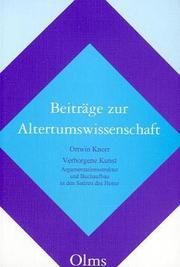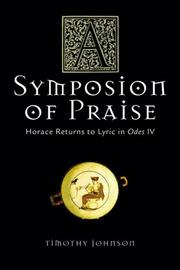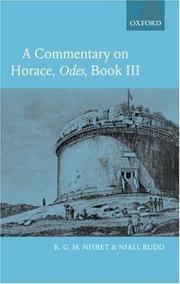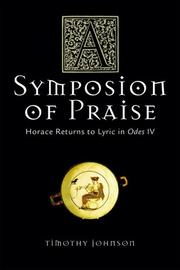| Listing 1 - 10 of 16 | << page >> |
Sort by
|
Book
Year: 2004 Publisher: Project Gutenberg
Abstract | Keywords | Export | Availability | Bookmark
 Loading...
Loading...Choose an application
- Reference Manager
- EndNote
- RefWorks (Direct export to RefWorks)
Authors --- English --- 18th century --- Correspondence --- Walpole --- Horace --- 1717-1797
Book
Abstract | Keywords | Export | Availability | Bookmark
 Loading...
Loading...Choose an application
- Reference Manager
- EndNote
- RefWorks (Direct export to RefWorks)
Walpole --- Horace --- 1717-1797 --- Correspondence --- Authors --- English --- 18th century
Book
Abstract | Keywords | Export | Availability | Bookmark
 Loading...
Loading...Choose an application
- Reference Manager
- EndNote
- RefWorks (Direct export to RefWorks)
Walpole --- Horace --- 1717-1797 --- Correspondence --- Authors --- English --- 18th century
Book
Year: 2004 Publisher: Project Gutenberg
Abstract | Keywords | Export | Availability | Bookmark
 Loading...
Loading...Choose an application
- Reference Manager
- EndNote
- RefWorks (Direct export to RefWorks)
Authors --- English --- 18th century --- Correspondence --- Walpole --- Horace --- 1717-1797
Book
Abstract | Keywords | Export | Availability | Bookmark
 Loading...
Loading...Choose an application
- Reference Manager
- EndNote
- RefWorks (Direct export to RefWorks)
Walpole --- Horace --- 1717-1797 --- Correspondence --- Authors --- English --- 18th century
Book
Abstract | Keywords | Export | Availability | Bookmark
 Loading...
Loading...Choose an application
- Reference Manager
- EndNote
- RefWorks (Direct export to RefWorks)
Walpole --- Horace --- 1717-1797 --- Correspondence --- Authors --- English --- 18th century

ISBN: 3487125390 Year: 2004 Publisher: Hildesheim Olms
Abstract | Keywords | Export | Availability | Bookmark
 Loading...
Loading...Choose an application
- Reference Manager
- EndNote
- RefWorks (Direct export to RefWorks)
Verse satire, Latin --- History and criticism. --- Horace. --- Rome --- In literature. --- History and criticism

ISBN: 9780299207441 Year: 2004 Publisher: Madison, Wisc. : University of Wisconsin Press,
Abstract | Keywords | Export | Availability | Bookmark
 Loading...
Loading...Choose an application
- Reference Manager
- EndNote
- RefWorks (Direct export to RefWorks)
Laudatory poetry, Latin --- Lyric poetry --- Odes, Latin --- Praise in literature. --- History and criticism. --- Horace. --- Rome --- In literature.

ISBN: 0199263140 9780199263141 9780199288748 0191514675 1280838310 Year: 2004 Publisher: Oxford New York : Oxford University Press,
Abstract | Keywords | Export | Availability | Bookmark
 Loading...
Loading...Choose an application
- Reference Manager
- EndNote
- RefWorks (Direct export to RefWorks)
This book is a successor to the commentaries by Nisbet and Hubbard on Odes I and II, but it takes critical note of the abundant recent writing on Horace. It starts from the precise interpretation of the Latin; attention is paid to the nuances implied by the word-order; parallel passages are quoted, not to depreciate the poet's originality but to elucidate his meaning and to show how he adapted his predecessors; sometimes major English poets are cited to exemplify his influence on the tradition. In expounding the so-called Roman Odes the editors reject not only uncritical acceptance of Augustan ideology but also more recent attempts to find subversion in a court-poet. They show how Greek moralizing, particularly by the Epicureans, is applied to contemporary social situations. Poems on country festivals are treated sympathetically in the belief that the tolerant and inclusive religion of the Romans can easily be misunderstood. The poet's wit is emphasized in his addresses both to eminent Romans and to women with Greek names; the latter poems are taken as reflecting his general experience rather than particular occasions. Though Horace's ironic self-presentation must not be understood too literally, the editors reject the modern tendency to treat the author as unknowable. Although the text of the Odes is not printed separately, the headings to the notes provide a continuous text. The editors put forward a number of conjectures, most of them necessarily tentative, and in the few cases where they disagree, both opinions are summarized.
Laudatory poetry, Latin --- Odes, Latin --- History and criticism --- Odes --- History and criticism. --- Horace. --- Rome --- In literature. --- Laudatory poetry, Latin - History and criticism --- Odes, Latin - History and criticism

ISBN: 0299207404 0299207447 9786612269714 1282269712 0299207439 9780299207403 9780299207434 9781282269712 6612269715 Year: 2004 Publisher: Madison, Wisc. : University of Wisconsin Press,
Abstract | Keywords | Export | Availability | Bookmark
 Loading...
Loading...Choose an application
- Reference Manager
- EndNote
- RefWorks (Direct export to RefWorks)
Ten years after publishing his first collection of lyric poetry, 'Odes I-III', Horace (65 B.C.-8 B.C.) returned to lyric and published another book of fifteen odes, 'Odes IV'. These later lyrics, which praise Augustus, the imperial family, and other political insiders, have often been treated more as propaganda than art. But in 'A Symposion of Praise', Timothy Johnson examines the richly textured ambiguities of 'Odes IV' that engage the audience in the communal or "sympotic" formulation of Horace's praise. Surpassing propaganda, 'Odes IV' reflects the finely nuanced and imaginative poetry of Callimachus rather than the traditions of Aristotelian and Ciceronian rhetoric, which advise that praise should present commonly admitted virtues and vices. In this way, Johnson demonstrates that Horace's application of competing perspectives establishes him as Pindar's rival. Johnson shows the Horatian panegyrist is more than a dependent poet representing only the desires of his patrons. The poet forges the panegyric agenda, setting out the character of the praise (its mode, lyric, and content both positive and negative), and calls together a community to join in the creation and adaptation of Roman identities and civic ideologies. With this insightful reading, 'A Symposion of Praise' will be of interest to historians of the Augustan period and its literature, and to scholars interested in the dynamics between personal expression and political power.
Praise in literature. --- Laudatory poetry, Latin --- Lyric poetry --- Odes, Latin --- Praise in literature --- History and criticism --- Horace. --- Rome --- In literature. --- Odes --- History and criticism.
| Listing 1 - 10 of 16 | << page >> |
Sort by
|

 Search
Search Feedback
Feedback About UniCat
About UniCat  Help
Help News
News